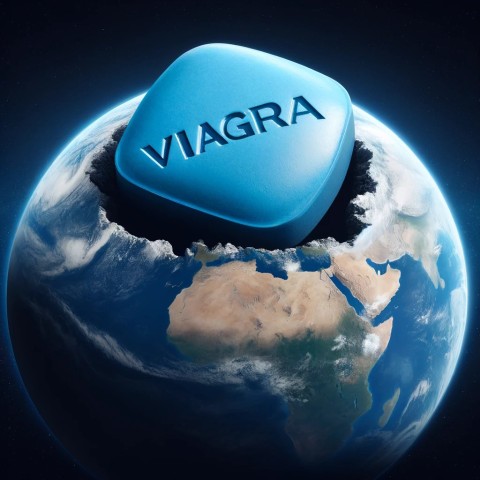Sexuality is a fundamental and natural part of human life that plays a crucial role not only in reproduction but also in individual well-being and the quality of human relationships. A healthy sexual life contributes to physical and mental health, improves self-esteem, and strengthens relationships. Despite its importance, many people struggle with sexual problems that can impact their overall quality of life. This article aims to provide a comprehensive overview of sexual stimulants and stimulating agents, exploring their types, mechanisms of action, benefits, and potential risks.
Understanding Sexual Health and Addressing Sexual Dysfunctions
Sexual health is a state of physical, emotional, mental, and social well-being related to sexuality. It is not merely the absence of disease, dysfunction, or infirmity. Achieving sexual health requires a positive and respectful approach to sexuality and sexual relationships, as well as the possibility of having pleasurable and safe sexual experiences free of coercion, discrimination, and violence.
Sexual dysfunctions, which include issues such as erectile dysfunction (ED), decreased libido, and anorgasmia, can significantly impact an individual's quality of life. Addressing these issues often involves a combination of psychological counseling, lifestyle changes, and pharmacological interventions.
Types of Sexual Stimulants
Sexual stimulants can be broadly categorized into natural supplements and pharmaceutical drugs. Each category includes a variety of substances with different mechanisms of action and efficacy.
-
Natural Supplements
Herbal Supplements: Many herbs have been traditionally used to enhance sexual function. Some of the most common include ginseng, maca, yohimbine, and tribulus terrestris.
Amino Acids and Vitamins: Supplements like L-arginine, L-citrulline, and vitamin E are believed to improve sexual function by enhancing blood flow or hormonal balance.
Aphrodisiacs: Foods and extracts such as oysters, dark chocolate, and ginkgo biloba are often touted for their libido-boosting properties.
-
Pharmaceutical Drugs
Phosphodiesterase Type 5 Inhibitors (PDE5 inhibitors): Medications like sildenafil (Viagra), tadalafil (Cialis), and vardenafil (Levitra) are commonly prescribed for ED. They work by increasing blood flow to the penis.
Hormonal Treatments: Testosterone replacement therapy (TRT) is used for men with low testosterone levels to improve libido and sexual function.
Other Medications: Certain antidepressants, such as bupropion, and drugs like flibanserin (Addyi) are used to address sexual dysfunction in both men and women.
Mechanisms of Action
Understanding how sexual stimulants work can help in choosing the appropriate treatment based on the underlying cause of the dysfunction.
-
Enhanced Blood Flow
PDE5 Inhibitors: These drugs inhibit the enzyme phosphodiesterase type 5, which leads to the relaxation of smooth muscles and increased blood flow to the penis, facilitating erection.
Nitric Oxide Pathway: Amino acids like L-arginine and L-citrulline increase nitric oxide production, which dilates blood vessels and improves blood circulation.
-
Hormonal Balance
Testosterone Therapy: Testosterone is essential for libido and sexual function in men. Supplementing testosterone can help restore sexual desire and performance in those with deficiency.
Estrogen and Progesterone: For women, balanced levels of estrogen and progesterone are crucial for sexual health. Hormonal treatments can help alleviate symptoms of menopause that affect sexual function.
-
Neurological and Psychological Effects
Neurotransmitter Modulation: Drugs like bupropion and flibanserin work by affecting neurotransmitters in the brain, such as dopamine and serotonin, which are involved in sexual desire and arousal.
Stress Reduction: Some natural supplements, like ginseng, have adaptogenic properties that help reduce stress, indirectly improving sexual function.
Benefits of Sexual Stimulants
The use of sexual stimulants can offer numerous benefits, including:
-
Improved Sexual Performance
Enhanced erectile function and stamina
Increased libido and sexual desire
Better control over ejaculation
-
Enhanced Emotional Well-being
Reduced anxiety and stress related to sexual performance
Improved self-esteem and confidence
Strengthened intimate relationships
-
Overall Health Benefits
Some supplements have additional health benefits, such as improved cardiovascular health (e.g., L-arginine) and increased energy levels (e.g., ginseng).
Potential Risks and Side Effects
While sexual stimulants can offer significant benefits, they also come with potential risks and side effects that need to be considered.
-
Pharmaceutical Drugs
PDE5 Inhibitors: Common side effects include headaches, flushing, indigestion, and nasal congestion. Rare but serious side effects can include vision and hearing loss and priapism (a prolonged and painful erection).
Hormonal Treatments: Testosterone therapy can lead to acne, sleep apnea, and an increased risk of heart disease and prostate issues. For women, estrogen therapy can increase the risk of certain cancers and blood clots.
-
Natural Supplements
Herbal Supplements: The efficacy and safety of many herbal supplements are not well-regulated. Potential side effects can include allergic reactions, gastrointestinal issues, and interactions with other medications.
Amino Acids and Vitamins: While generally safe, excessive use of these supplements can lead to imbalances and health issues, such as cardiovascular problems from excessive L-arginine intake.
-
Psychological Dependence
Over-reliance on sexual stimulants can lead to psychological dependence, where individuals feel they cannot perform sexually without these aids.
Choosing the Right Stimulant
Selecting the appropriate sexual stimulant depends on various factors, including the underlying cause of the dysfunction, overall health, and personal preferences. Consulting a healthcare provider is crucial for a proper diagnosis and treatment plan.
-
Medical Evaluation
Physical Examination: To rule out underlying health conditions such as diabetes, cardiovascular disease, or hormonal imbalances.
Psychological Assessment: To address any mental health issues such as stress, anxiety, or depression that may be affecting sexual function.
-
Lifestyle Modifications
Diet and Exercise: A healthy lifestyle can significantly improve sexual health. Regular exercise, a balanced diet, and maintaining a healthy weight can enhance sexual performance.
Stress Management: Techniques such as mindfulness, yoga, and counseling can help reduce stress and anxiety, improving overall sexual health.
-
Personal Preferences
Some individuals may prefer natural supplements over pharmaceutical drugs due to concerns about side effects and long-term health impacts.
Future Directions in Sexual Health
Research in the field of sexual health is ongoing, with new treatments and therapies continually being developed. Some promising areas of research include:
-
Gene Therapy
Investigating the potential of gene therapy to treat erectile dysfunction by targeting specific genes involved in penile erection mechanisms.
-
Stem Cell Therapy
Exploring the use of stem cells to regenerate damaged tissues and improve erectile function.
-
Advancements in Drug Delivery Systems
Developing more effective and targeted drug delivery systems to reduce side effects and improve efficacy.
Sexual health is an integral part of overall well-being, and addressing sexual dysfunctions can significantly improve quality of life. Sexual stimulants and stimulating agents offer a range of options for enhancing sexual performance and satisfaction. However, it is essential to approach these treatments with caution, considering the potential risks and consulting healthcare professionals for personalized advice. As research progresses, new and innovative solutions will continue to emerge, offering hope and improved outcomes for those experiencing sexual health challenges.

